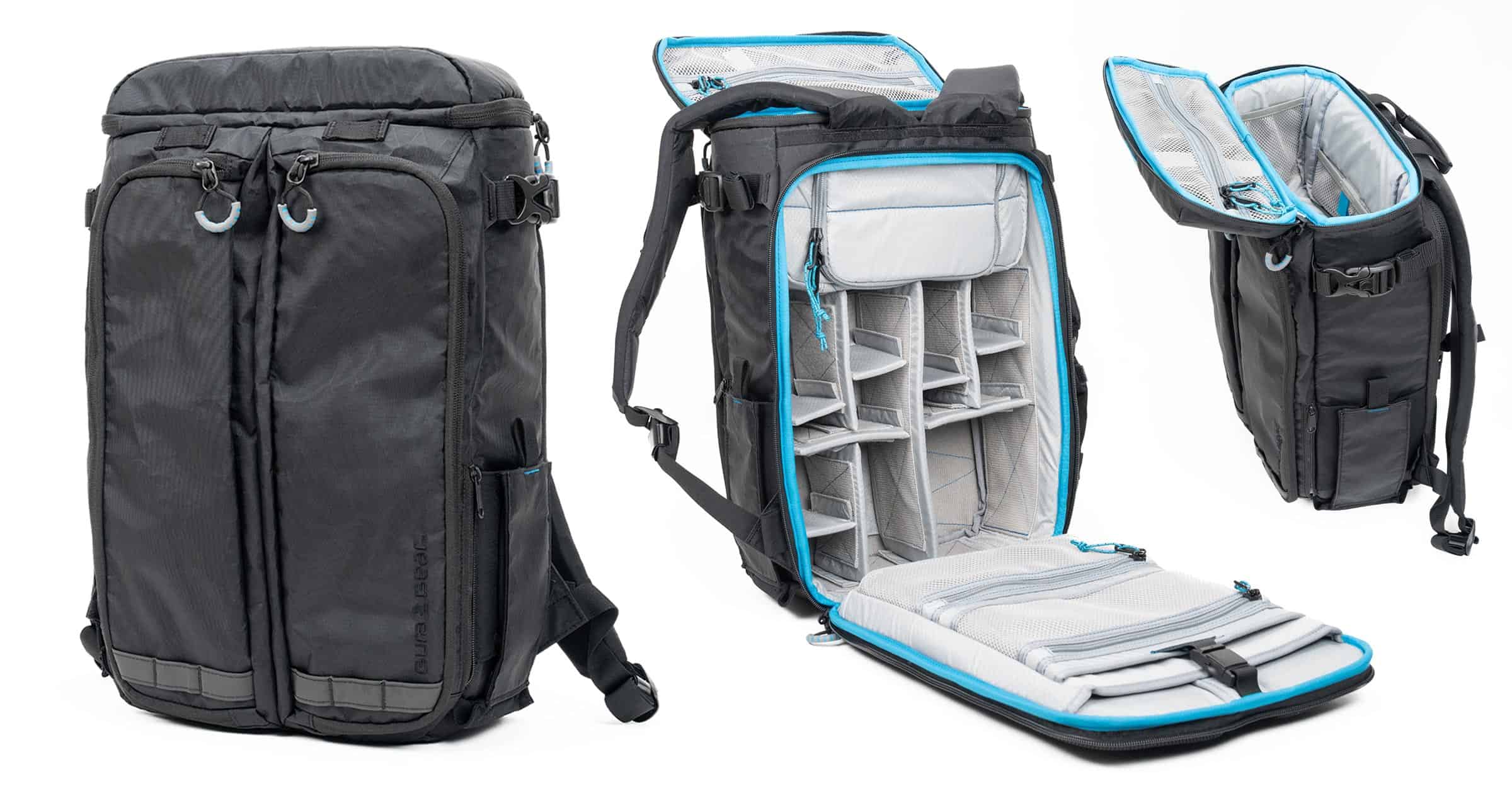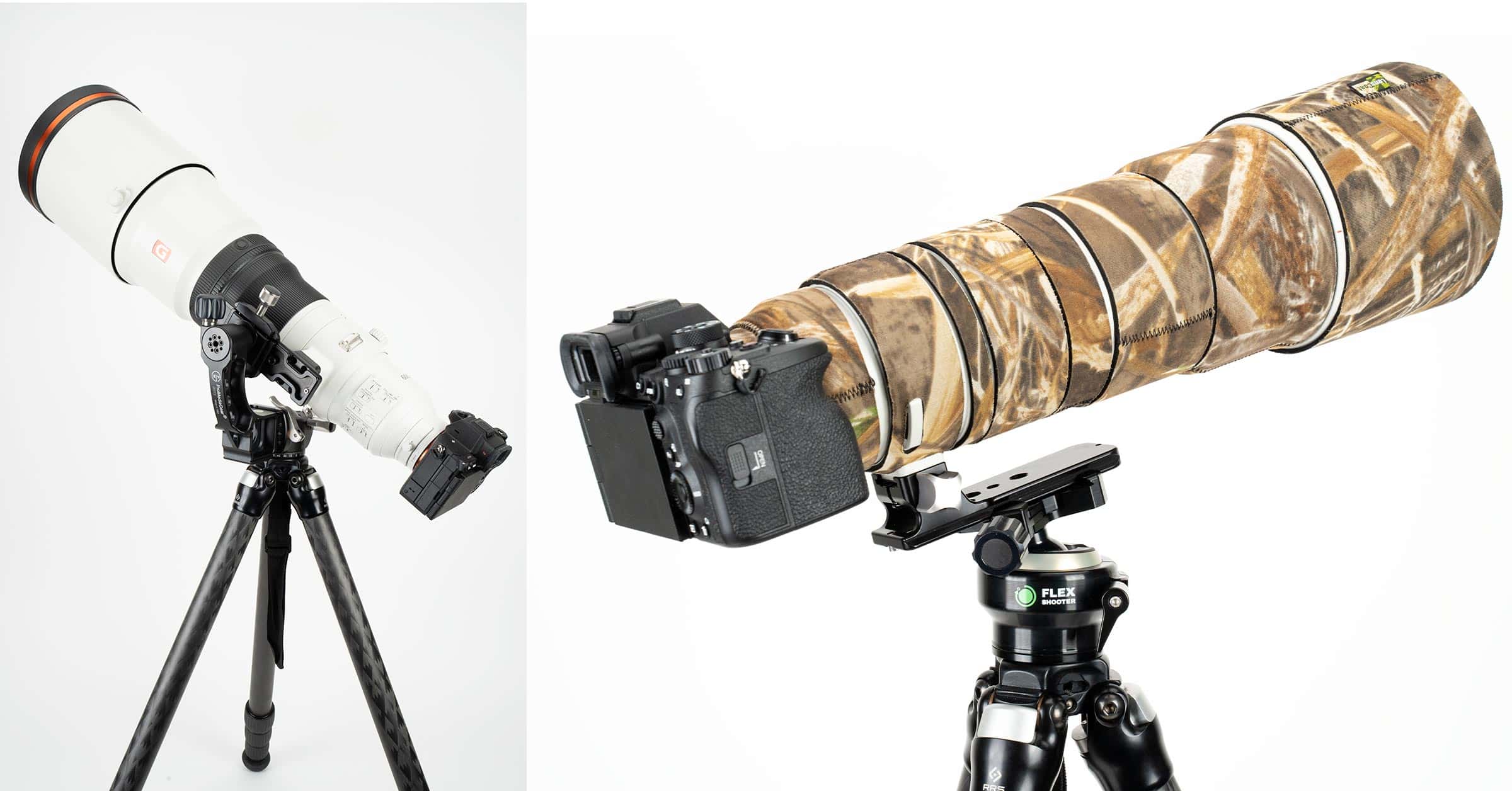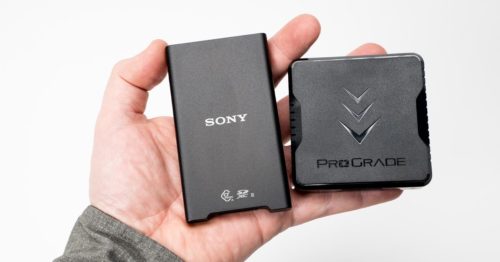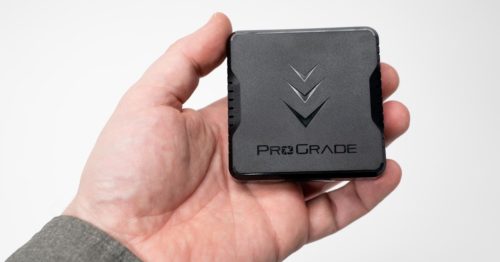ProGrade Digital’s CFexpress 2.0 Cobalt 160GB Type A memory card has a claimed maximum read speed of 800MB/s, a maximum write speed of 700MB/s, and meets VPG400 testing standards to ensure a minimum sustained write speed of 400MB/s. I purchased a pair of these cards through regular retail channels and have been using them for over a year in a range of Sony mirrorless cameras for long-term testing. I then performed speed tests on the cards to gauge their performance with small and large file-size operations.

Table of Contents
ProGrade Digital Cobalt Type A Specifications

- Card Type – CFexpress Type A
- Card Specification – CFexpress 2.0
- Bus Type – NVMe PCIe 3.0 x4 Bus
- Model # – PGCFXA160GPBH
- Capacity – 160GB
- Max Read Speed – 800 MB/s
- Max Write Speed – 700 MB/s
- Min Write Speed – 400 MB/s
- VPG Rating – 400
- Protection – Shock / Vibration / X-Ray Proof
- Price – $199 at reivew time (Check current price)
The ProGrade CFexpress Type B Cobalt card was tested and reviewed in another post.
ProGrade Cobalt Type A Speed Tests
This card’s speed testing was performed using the ProGrade Digital Type A USB4 card reader. Note that if you use a USB 3.2 reader, your card speeds will be slower, and your download times will be longer. I have written about how CFexpress 2.0 cards can still benefit from being used in a CFexpress 4.0 reader. But I digress. Let’s return to the results from my usual speed test sets using AJA and Blackmagic’s testing tools. For reference, ProGrade Digital says these cards should reach 800MB/s in maximum read speeds and 700MB/s in maximum write speeds. The write speed shouldn’t drop below 400MB/s in longer large file writes.













Result Discussion – Good or Bad?
These are mostly excellent results. I recorded maximum read and write speeds above what ProGrade was suggesting possible. Sustained speeds dropped over larger file writes, but this is the norm, and clearly, the card already beat the rigorous VPG400 testing performed by the Compact Flash Association. Sustained average read and write speeds did show a fair amount of fluctuation, though.
The cards got extremely hot to the touch on the more extended 64GB tests, so the fluctuations are likely due to thermal throttling. If you plan to use the cards to shoot long runs of 4K video, I would keep this in mind. I don’t have a scientific way to test heat generation, but this is about as hot as I remember a CFexpress Type A card getting during my tests. This heat will be transferred internally to your camera on long runs, and there is a possibility that it will contribute to camera overheating issues. For stills photographers or occasional video shooters creating shorter clips, this is nothing to worry about.
Compared to other CFexpress Type A cards on the market, we can’t look past the Delkin Black 160GB Type A card as this is also one of the few VPG400-rated CFexpress 2.0 Type A cards. In my review of that Delkin Black CFexpress Type A card, I found it to show marginally better maximum write speeds and near-identical read speeds to the ProGrade Cobalt card. Overall, there was almost nothing between them. They are just about the two closest cards I have ever tested, and I’d be loathe to choose between them.
CFexpress 2.0 Vs. 4.0
The ProGrade Digital Cobalt card tested in this review uses the CFexpress 2.0 specification. As the CFexpress card standard continues to evolve, so do the specification and maximum performance attributes. CFexpress 4.0 cards superseded 2.0 cards in 2024. At review time, no cameras support the 4.0 standard. However, photographers and filmmakers can use CFexpress 4.0’s speed by pairing a 4.0 card with a 4.0 card reader, resulting in much faster file ingests at the end of a day of shooting.
That said, this ProGrade Cobalt card is one of the fastest 2.0 cards on the market, and in some situations, it may still deliver higher performance than a low-grade CFexpress 4.0 card. This card still confirms VPG400 standards, while some CFexpress 4.0 do not. Therefore, if you need a VPG400 CFexpress Type A card, of which very few exist, the Cobalt card may still be your best option.
Alternative CFexpress Type A Options
Compare the ProGrade Digital CFexpress 2.0 Type A 160GB card to my other recommended card options in 2025.
CFexpress Type A 2.0
| Card Model | Price* | Max Read | Max Write | Sus Write | VPG Rating |
|---|---|---|---|---|---|
| ProGrade Digital Gold CFexpress 2.0 Type A 120/240/480/960GB (review) | $130-$440 | 900 MB/s | 800 MB/s | 600 MB/s | 200 |
| Delkin BLACK CFexpress 2.0 Type A 160GB (review) | $269.00 | 880 MB/s | 790 MB/s | Unspecified | 400 |
CFexpress Type A 4.0
| Card Model | Price* | Max Read | Max Write | Sus Write | VPG Rating |
|---|---|---|---|---|---|
| OWC Atlas Pro CFexpress 4.0 Type A 240GB (review) | $199 | 1850 MB/s | 1700 MB/s | 400 MB/s | 200 |
| OWC Atlas Pro CFexpress 4.0 Type A 480GB (review) | $319.99 | 1850 MB/s | 1700 MB/s | 400 MB/s | 200 |
| OWC Atlas Pro CFexpress 4.0 Type A 960GB (review) | $519.99 | 1850 MB/s | 1700 MB/s | 400 MB/s | 200 |
| ProGrade Digital CFexpress 4.0 Type A Iridium 480GB (review) | $389.99 | 1800 MB/s | 1700 MB/s | 800 MB/s | 200 |
| ProGrade Digital CFexpress 4.0 Type A Iridium 960GB | $599.99 | 1800 MB/s | 1700 MB/s | 1450 MB/s | 200 |
| Exascend Essential Pro 4.0 CFexpress Type A 256GB | $279.00 | 1800 MB/s | 1650 MB/s | 850 MB/s | 400 |
| Exascend Essential Pro 4.0 CFexpress Type A 512GB | $379.00 | 1800 MB/s | 1650 MB/s | 850 MB/s | 400 |
| Exascend Essential Pro 4.0 CFexpress Type A 1TB | $699.00 | 1800 MB/s | 1650 MB/s | 1650 MB/s | 400 |
| Wise Advanced CFexpress 4.0 Type A 256GB | $219.99 | 1865 MB/s | 1750 MB/s | Unspecified | 400 |
| Wise Advanced CFexpress 4.0 Type A 512GB | $359.99 | 1865 MB/s | 1750 MB/s | Unspecified | 400 |
| Wise Advanced CFexpress 4.0 Type A 1TB | $549.99 | 1865 MB/s | 1750 MB/s | Unspecified | 400 |
| Angelbird 256/512GB or 1TB AV PRO CFexpress 4.0 Type A | $199-499 | 1800 MB/s | 1650 MB/s | 800 MB/s | 400 |
Conclusion
I relied on these ProGrade Digital cards as part of my primary CFexpress card kit for shoots worldwide. They never let me down. In terms of performance, they exceeded the quoted maximum read and write speeds in my testing. The only real downside to the Cobalt cards is their limited capacity of 160GB.
If you need more capacity, I recommend looking at ProGrade Digital’s Gold series CFexpress 2.0 Type A cards, which come in 120GB-960GB capacities, or the ProGrade Iridium Series card in a 960GB capacity.
Where to Buy
The ProGrade Digital CFexpress 2.0 Type A Cobalt cards have been discontinued and replaced by the CFexpress 2.0 Type A Gold cards and the CFexpress 4.0 Type A Iridium cards. Links to the newer cards are listed below. As always, using my links for your purchases is appreciated.
- ProGrade Digital CFexpress 2.0 Type A Gold 240GB – B&H Photo / Amazon / Adorama
- ProGrade Digital CFexpress 2.0 Type A Gold 480GB – B&H Photo / Amazon / Adorama
- ProGrade Digital CFexpress 4.0 Type A Iridium 480GB – B&H Photo / Amazon / Adorama
- ProGrade Digital CFexpress 4.0 Type A Iridium 960GB – B&H Photo / Amazon / Adorama
- ProGrade Digital CFexpress 2.0 Type A Cobalt 160GB DISCONTINUED –
B&H Photo/Amazon/Adorama/WEX(UK)









